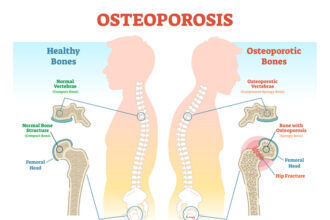Type 2 diabetes is recognised as a significant risk factor for dementia. However, the specific effects of diabetes and its precursor stage, prediabetes, on brain ageing among individuals without dementia have not been thoroughly understood. Recent findings from an extensive brain imaging study now reveal that both diabetes and prediabetes contribute to accelerated brain ageing.
The research utilised data from over 31,000 participants aged between 40 and 70, all of whom are part of the UK Biobank and had undergone brain MRI scans (magnetic resonance imaging). By employing a machine learning technique, the researchers were able to estimate the age of the brain relative to the person’s actual chronological age.
The findings indicated that prediabetes and diabetes are associated with an increased brain age; specifically, the brains of individuals with prediabetes and diabetes were found to be 0.5 and 2.3 years older than their chronological age, respectively. This discrepancy was even more pronounced in individuals with poorly managed diabetes, where the brain age appeared over four years older than the chronological age. Additionally, the study observed that the gap between brain and chronological age tended to widen gradually among those suffering from diabetes. Notably, these effects were less pronounced in individuals who engaged in high levels of physical activity and avoided smoking and excessive alcohol consumption.
Abigail Dove, the lead author of the study and a PhD student at the Department of Neurobiology, Care Sciences and Society at Karolinska Institutet, emphasised the significance of these findings. She stated that an older-looking brain compared to one’s chronological age might signal a deviation from normal ageing processes and potentially act as an early indicator of dementia risk. Encouragingly, Dove also highlighted that individuals with diabetes might have the potential to positively influence their brain health through adopting a healthy lifestyle.
Although only a small subset of the study participants had repeat MRI data available, the follow-up MRI scans are still being conducted, and the research team continues to explore the long-term relationship between diabetes, prediabetes, and brain ageing.
Dove also pointed out the increasing prevalence of type 2 diabetes and expressed hope that the study’s outcomes would aid in preventing cognitive impairment and dementia in individuals diagnosed with diabetes or prediabetes. This research underscores the potential for interventions that could mitigate the negative impacts of these conditions on brain health.
More information: Abigail Dove et al, Diabetes, Prediabetes, and Brain Aging: The Role of Healthy Lifestyle, Diabetes Care. DOI: 10.2337/dc24-0860
Journal information: Diabetes Care Provided by Karolinska Institutet








